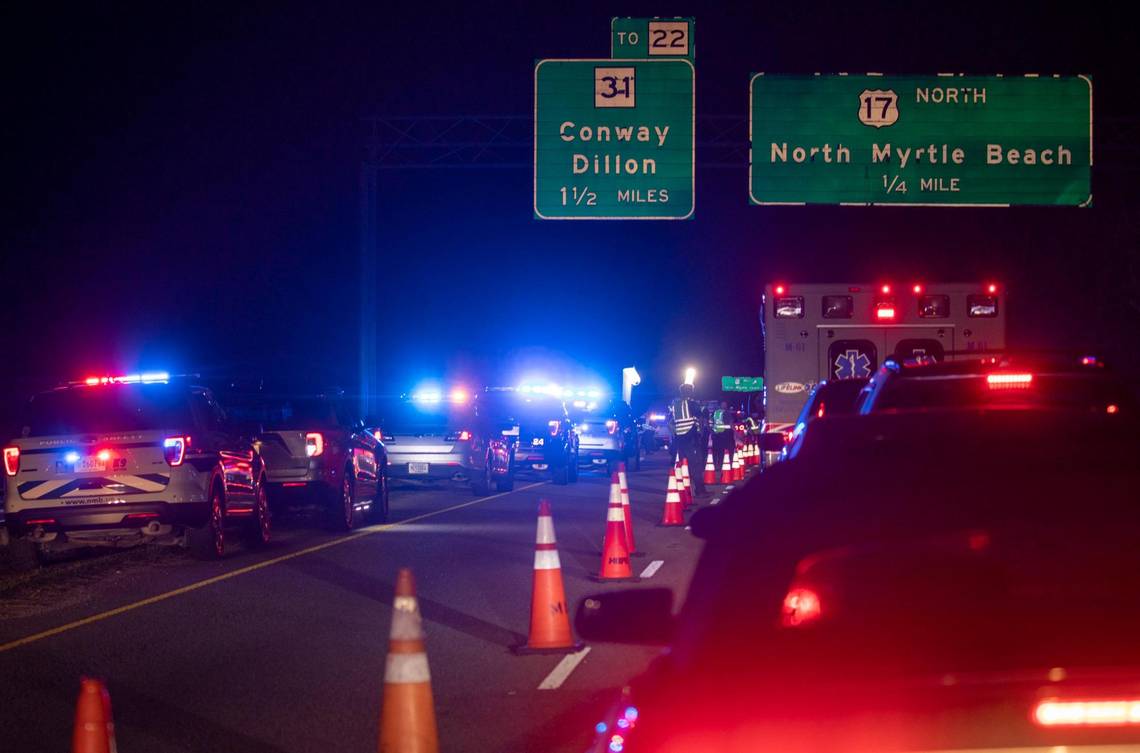
Although you’re late for the big game or a crucial appointment, you’re still going the speed limit, properly changing lanes, and completely sober. Still, you and dozens of other drivers are stopped by police at a safety checkpoint.
Is that even legal?
The answer is yes, provided police are themselves following the law.
Law enforcement agencies in South Carolina are allowed to set up checkpoints to enforce traffic laws, check for impaired drivers, or ensure drivers have valid licenses, vehicle registration and proof of insurance.
The U.S. Supreme Court in 1990 ruled that sobriety checkpoints do not violate the Constitution’s Fourth Amendment prohibition of unreasonable searches and seizures. But agencies must follow a set of guidelines that include publicly announcing the date and location of the checkpoint in advance, which most do via their social media accounts.
Last week, for example, the Lexington County Sheriff’s Department announced on it’s X account that multiple safety checkpoints would be set up on Lake Murray Boulevard, Nazareth Road, Westover Road and several other locations.
In addition, law enforcement officials must ensure the checkpoints are safe by setting up proper lighting, warning signs and signals. Roadblocks must also by identified as a license or a DUI checkpoint, and officers cannot go beyond the scope and purpose of the roadblock without probable cause.
This means drivers don’t have to answer questions unrelated to the purpose of the checkpoint, according to criminal defense attorneys at Futeral and Nelson. For example, if the checkpoint’s purpose is to ensure all drivers have licenses, you don’t have to tell the officer if you just left a grocery store, school or a bar.
Further, a law enforcement supervisor must approve checkpoints before they’re set up along with procedures for the checkpoint’s operation.
Checkpoints also must be conducted at a reasonable time and location, and officers must have a valid reason for the checkpoint’s location, such as an in increase in accidents or DUI cases in a certain area.
A 2023 study by ScienceDirect found that while sobriety checkpoints may inadvertently reduce violent crime, specifically assaults in the area in which the roadblock is set up, “specific deterrent effects are thought to be small because arrest rates at sobriety checkpoints are generally very low.”
Lastly, officers cannot stop drivers at random. Instead, they must establish a pattern in the way drivers are stopped, such as every second or third car. They also can’t stop every car.
But what happens if you see a checkpoint ahead? Can you turn around to avoid it?
Here’s what Lexington attorney James R. Snell Jr. says: “Fortunately, turning down another road or otherwise making a legal driving maneuver to avoid the checkpoint is not against the law. However, if you violate a traffic law in order to bypass a checkpoint, a police officer has the right to pull you over.”
EMEA Tribune is not involved in this news article, it is taken from our partners and or from the News Agencies. Copyright and Credit go to the News Agencies, email news@emeatribune.com Follow our WhatsApp verified Channel





